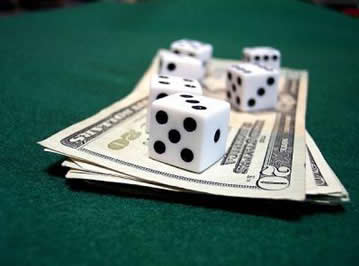Gambling Tax Uk Winnings
- Gambling Winnings Tax Rate Uk
- Gambling Winnings Tax Free Uk
- Gambling Tax Uk Winnings Money
- Gambling Tax Uk Winnings Tax Calculator
- Gambling Tax Uk Winnings 2019
- Gambling Tax Uk Winnings Tax
The high rollers among you will of course already be aware that your gambling winnings aren’t taxable in the UK. To be fair, even the smaller stakes players know this.
Players are not required to pay taxes on winnings from online or land based casinos in the United Kingdom. UK gambling tax applies to casino operators, who are required to pay 2.5-40% of their gross gaming revenue. The United Kingdom has a wide variety of casinos, with around 24 in London, 13 in Scotland and 5 in Wales. Understanding Gambling Tax in the UK. The United Kingdom is among top 3 jurisdictions in the world that holds a flourishing gambling industry. Besides the fact that both land-based casinos and eGaming sites are stringently regulated and formally licensed here, the best part is that there is no tax on gambling winnings in the UK. For these players, gambling winnings are considered regular income for tax purposes, meaning that they are taxed at the normal income tax rate, rather than the gambling tax rate. All income and expenses for professional gamblers much be recorded on Schedule C, not Schedule A. In general, no UK gamblers/traders will pay tax on their winnings. They are Tax Free. The Inland Revenue has now shifted to onus of any tax liable, to be paid by the companies, bookmakers, and trading outlets – such as Betfair, and this takes a whole heap of pressure of the punters/gamblers. Thankfully, lucky punters in the United Kingdom are not required to declare their gambling winnings for tax purposes. According to HM Revenue & Customs (HMRC), gambling is not considered a taxable trade or activity and therefore you do not have to declare any winnings.

Gambling Winnings Tax Rate Uk
Here, we have a system in that we do not have to pay taxes on any of your winnings or stakes. And while this wasn’t always the case, today, this applies to all types of gambling, betting, poker, bingo slots and lotteries.
In many ways you are still paying tax on gambling it is just this is now put directly onto betting companies in the form of a point of cosumption tax. This 21% tax online and 15% in retail shops ultimately gets passed onto the customer through lower value odds and payouts. Once you do win money though it has effectively been pre-taxed and so you do not need to worry about paying any further tax at that stage.
Gambling Winnings Tax Free Uk
If you do land that big one, or you simply make a lot of money through gambling in your life, you can rest assured knowing that HRMC are not entitled to a slice and can only watch on. That is until you want to give that money away or leave it to someone who will inherit it. Here we will look at that aspect of tax on gambling winnings.
History Of Gambling Tax In The UK
It wasn’t always so rosy for UK punters though. From 1960 through 2001, when Gordon Brown abolished gambling tax in that year’s budget, bettors could choose to pay 9% tax on either the stake (keeping it minimal) or their winnings (potentially all or nothing).
This changed just after the century however and a 15% tax on bookmakers and their gross profits was imposed on the point of supply instead. It was around this time that many UK bookmakers, led by BetVictor, moved their online operations offshore to Gibraltar where tax was capped at 1%.
In 2014, there was another alteration the 2005 Gambling Act when tax was changed to 15% on all gross profits at point of consumption including those firms holed up in Gibraltar and the Isle of Man. In 2019 the tax rate was increased to 21% for online betting.

Does this situation mean that people who use gambling as their main source of income earn a tax free living? Well, yes, even in the case of professional gamblers, winnings are not taxable.
Gambling winnings, therefore, remain tax-free, regardless of whether it’s your main source of income or just a bit of fun. The only counter to the rule being if a player is appearing somewhere for a fee, thus professionalising his or her appearance.
Spread betting also falls outside of these rules, it is actually classed as trading, meaning if you do it as your main source of income then you are liable to pay income tax on this for of gambling.
What About Inheriting Gambling Winnings?
While your winnings aren’t taxable by any gambling laws, other taxes may still apply, not least of all your winnings could be vulnerable to an inheritance tax when you die.
Inheritance tax is levied on property or cash that somebody acquires by means of a gift or, well, inheritance.
If someone inherits your winnings they will be liable to inheritance tax so long as your estate is large enough. You might choose to get around this tax by giving your money away.
You can give away a tax free £3,000 annually to a person or even dish out up to £250 away in a gift to anyone you like so long as it is no more than £250.
Even if you do give your money away to a charity, it can still be taxed should you die within 7 years of your donation. Should you live longer than those 7 years, all monies will be exempt from the inheritance tax.
The threshold for this tax is £325,000.
Does This Only Apply To Big Amounts?

Not necessarily. You may have say £20,000 in gambling winnings saved as cash or assets, which of course would not be enough to be liable for inheritance tax on its own. If, however, the rest of your estate was worth over £325k then this money, no matter its source, will be added onto the top of that amount and if that takes you over the threshold there will be tax to pay.
Even if you use gambling winnings to buy a house and give this away in your inheritance it does not matter, the value of the house (or assest) will still be calculated as part of your estate.
The choice if you are in the situation is either to give your money away in small amounts over a number of years or face the fact it could be liable for inheritiance tax.
Gambling Tax Uk Winnings Money
Rules concerning income tax and gambling vary internationally.
United States[edit]
Gambling Tax Uk Winnings Tax Calculator
In the United States, gambling wins are taxable.
The Internal Revenue Code contains a specific provision regulating income-tax deductions of gambling losses. Under Section 165(d) of the Internal Revenue Code, losses from “wagering transactions” may be deducted to the extent of gains from gambling activities.[1] Essentially, in order to qualify for a deduction of losses from wagering, the taxpayer can only deduct up to the amount of gains he or she accrued from wagering. In Commissioner v. Groetzinger, the Supreme Court Justice Blackmun alludes to Section 165(d) which was a legislative attempt to close the door on suspected abuse of gambling loss deductions.[2]
Wagering Transaction[edit]
The Internal Revenue Service has ruled that a “wagering transaction” consists of three elements.[3] First, the transaction must involve a prize. Second, the element of chance must be present. Finally, the taxpayer must give some consideration.
Section 165(d) and Professional Gamblers[edit]
In Bathalter v. Commissioner, a full-time horse-race gambler had gains of $91,000 and losses of $87,000.[4] The taxpayer deducted the expenses under Section 162.[5] The service argued that Section 165(d) precluded the taxpayer from engaging in gambling as a 'trade or business.'[4] The Tax Court held that the taxpayer's gambling was a business activity and allowed the deductions.[6] In essence, the court held that Section 165(d) only applies when a taxpayer is at a loss instead of a net gain and “serves to prevent the [taxpayer] from using that loss to offset other income.” [7] However, if the taxpayer has a net gain, as the horse-race gambler did, then the taxpayer may deduct the expenses under Section 162, and Section 165(d) does not apply.[8]
Section 165(d) and Recreational Gamblers[edit]
In addition, in Valenti v. Commissioner, the court reiterated that Section 165(d) applies to professional gamblers as well as recreational gamblers.[9] The court stated, '... it has been held both by this Court and various courts of appeals that wagering losses cannot be deducted, except to the extent of the taxpayer's gains from wagering activities, and it has been so held even where such activities were conducted as a trade or business as opposed to a hobby.'[10] Therefore, for example, if a recreational gambler visits a casino one Saturday and accumulates $600 of losses and $200 of gains, that recreational gambler may deduct $200 of the wagering losses (because she can only deduct an amount up to the amount of wagering gains she accrued).
United Kingdom[edit]
In the United Kingdom, wins (unless in the course of a trade) are not taxable and losses are not deductible.
Germany[edit]
In Germany, wins are taxable since July 2012 by 5% of the winnings (profit).
Gambling Tax Uk Winnings 2019
Canada[edit]
Gambling Tax Uk Winnings Tax
In Canada gambling income is not generally taxable. If the gambling activity can be considered as a hobby, the income is not taxable.[11][12]
If the gambling is carried out in businesslike behaviour, then the income is taxable and losses deductible. Making approximately $50 million in sports lottery bets and earning a profit of $5 million was not considered businesslike behaviour in Leblanc v. The Queen. However, in the case of Luprypa v. The Queen the gambling income was ruled to be taxable. The case involved a skilled pool player that profited approximately $1000 per week playing staked pool games against bar patrons.[12]
Poker differs from many other forms of gambling as skilled players may increase their chances of winning significantly. In the case Cohen v. The Queen judge ruled that the gambling activities were not conducted in sufficiently businesslike manner and thus the losses were not deductible.[12]
See also[edit]
References[edit]
- ^IRC Section 165(d).
- ^480 U.S. 23, 32 (1987).
- ^Technical Advice Memorandum 200417004.
- ^ abT.C. Memo 1987-530.
- ^IRC Section 162.
- ^Id.
- ^Id.
- ^Id.
- ^T.C. Memo 1994-483.
- ^Id.
- ^Bonusfinder Canada. 'Do I need to pay taxes on my casino winnings?'. www.bonus.ca. Retrieved 24 February 2020.
- ^ abcRotfleisch, David. 'Taxation Of Gambling And Poker Winnings – A Toronto Tax Lawyer Guide'. mondaq.com. Retrieved 24 February 2020.